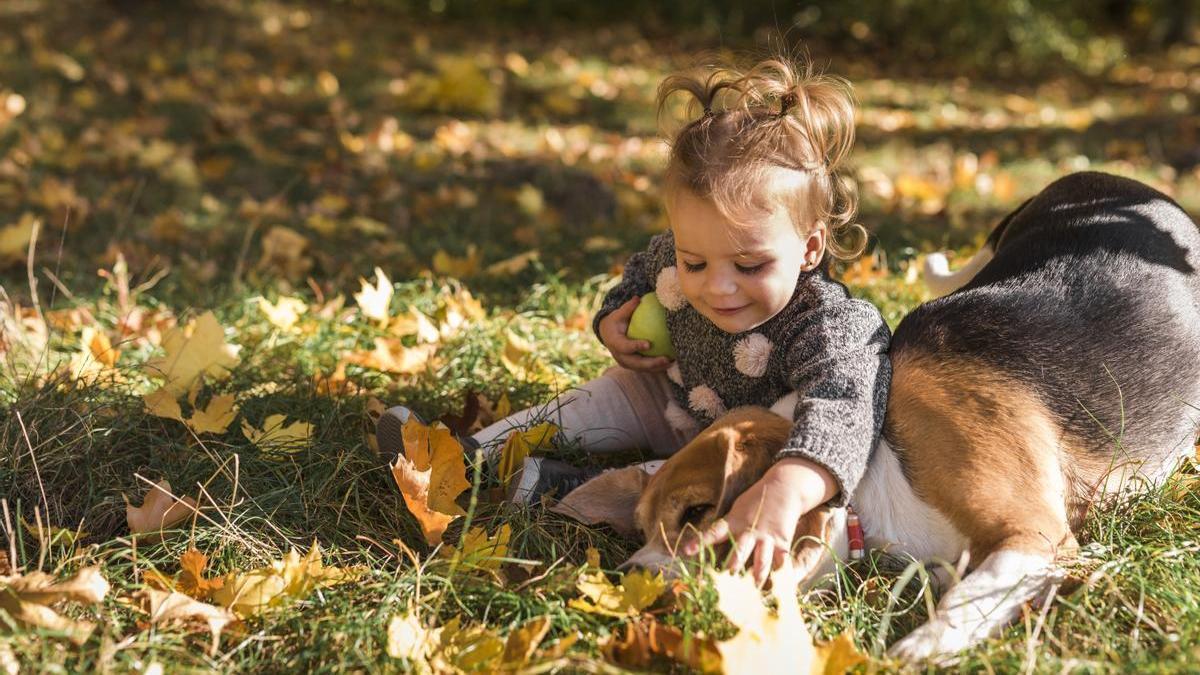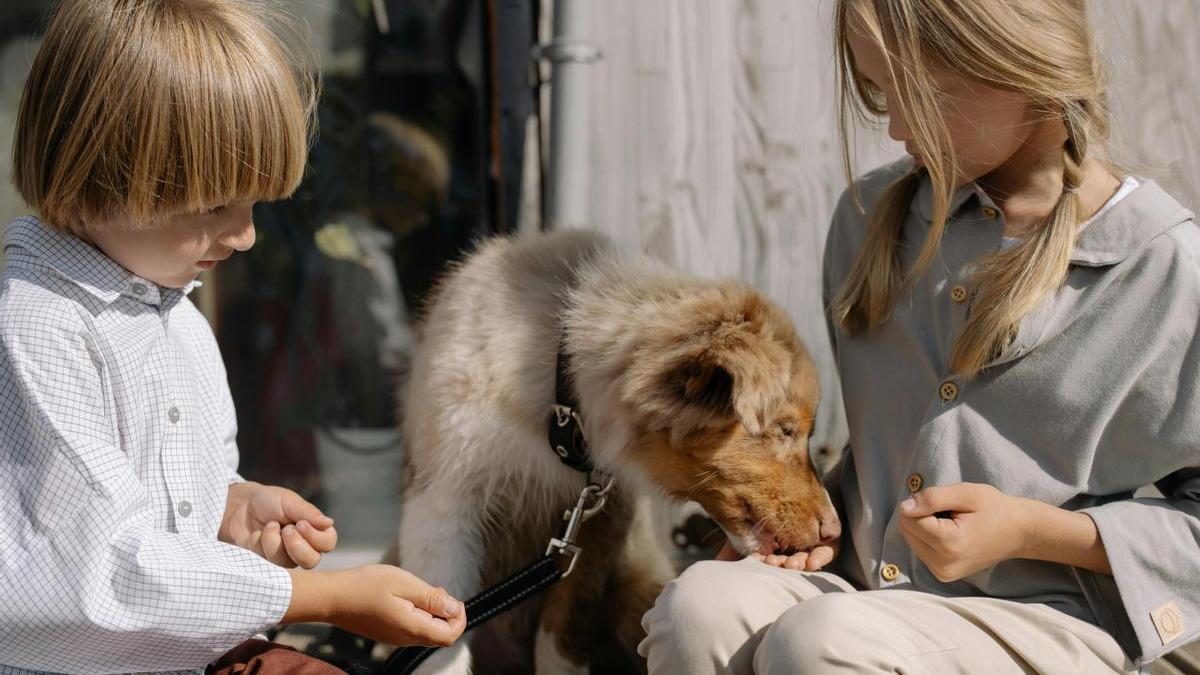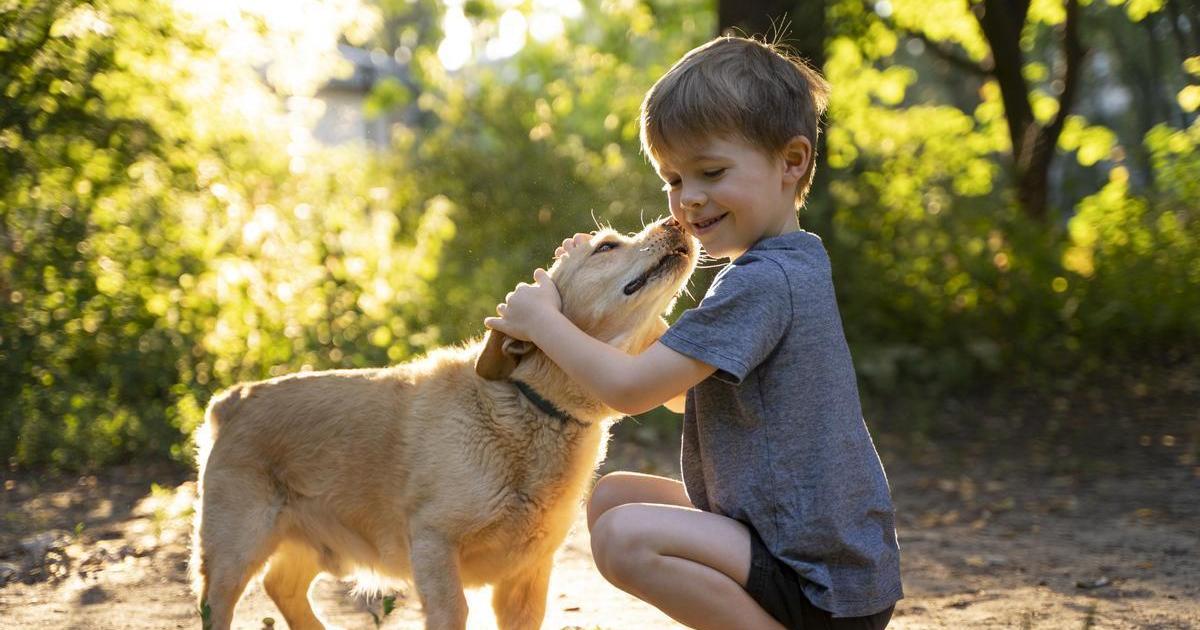

World Animal Day, celebrated every October 4is an opportunity to reflect on the importance of animals in our lives and the fundamental role they play in the well-being of people.
On this day, not only the need to protect animals and preserve their habitat is highlighted, but also the multiple benefits that having a pet can provide, especially in the children. Having an animal at home not only enriches daily life, but can also help the emotional, social and physical development of the smallest ones.
Playmates and emotional well-being
Having a pet at home offers children an inseparable friend with whom to share their time. Animals, whether dogs, cats, rabbits or even birds, are faithful companions that offer unconditional affection. This relationship helps children feel more accompanied, especially at times when they may feel alone or sad. In fact, scientific studies have shown that Interacting with a pet can reduce anxiety and stress levels in childrenimproving your general emotional well-being.
The simple act of petting an animal generates a relaxing effect in humans, releasing endorphins, the so-called “happiness hormones.” For children, who often have difficulty managing their emotions, this type of interaction can be especially valuable. Besides, pets can teach them skills like empathy and compassionby making them more aware of the feelings and needs of other living beings.

Little girl plays with her dog in the park
Development of responsibility and commitment
One of the most important benefits of having a pet at home is that it fosters a sense of responsibility in children. Animals require constant care, such as food, grooming and exercisewhich gives children the opportunity to take on small tasks and daily commitments. Giving them age-appropriate responsibilities, such as feeding the pet or making sure it has fresh water, teaches them to be more responsible and organize their time.
In addition, children learn that the well-being of a living being depends on their effort and dedication, which can strengthen your self-esteem and self-confidence seeing that they are capable of caring for another being. This sense of responsibility is transferred to other areas of their lives, such as studies and interpersonal relationships, making them people who are more organized and aware of their commitments.
Improved social interaction
Pets can also act as a bridge to improve children’s social skills. Many times, a dog or cat becomes the center of attention when children meet friends or even strangers at the park or in the neighborhood. Having a pet encourages conversation and can help shy people feel more comfortable interacting with others.
In the case of children with difficulties socializing, pets can serve as support, reducing the social anxiety and offering a natural way to initiate interactions. This is especially helpful for children who have difficulty in social settings or who suffer from extreme shyness. By having a pet, they can feel safer, since the animal acts as a kind of “mediator” between them and the environment.

Children interact with their pet
Physical and mental stimulation
Pets also play a crucial role in children’s physical activity. Owning a dog, for example, encourages outdoor activity, as walks and play sessions are a fundamental part of caring for the animal. These moments of exercise are not only beneficial for the child’s physical health, but also contribute to their mental well-being, helping them to release energy and reduce stress.
Additionally, pets provide mental stimulation. Children enjoy teaching them tricks, playing with them and observing their behavior, which awakens their curiosity and encourages attention span. For little ones, watching how your dog or cat reacts to different stimuli can be a playful way to learn about animal behavior and nature.
Support in difficult situations
Another positive aspect of having a pet at home is the emotional support they provide during difficult times. Animals can offer comfort in situations of stress, sadness, or even when the child is facing big changes, such as the arrival of a new sibling, the change of school or the separation of parents. In these cases, pets offer a source of stability and affection, which helps children cope with difficulties in a healthier way.
Several studies have shown that children who grow up with a pet are more likely to develop a greater capacity for resiliencethat is, to adapt and recover from adverse situations. Animals act as a constant source of emotional support, offering a comforting presence when children need it most.
